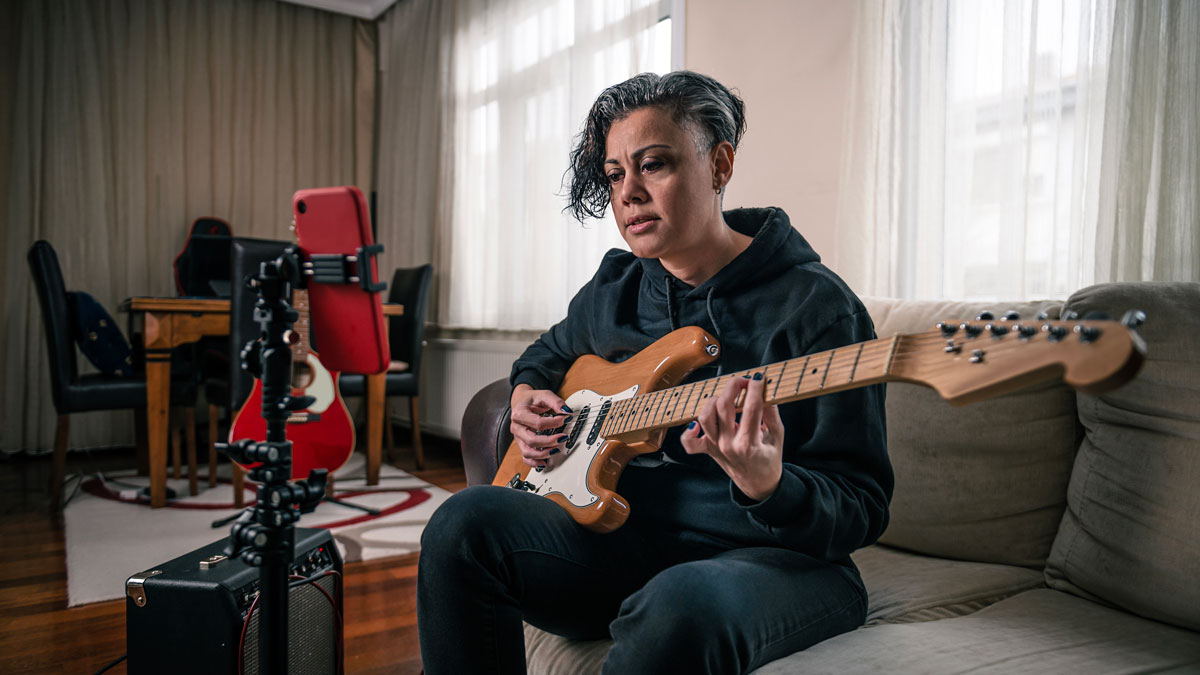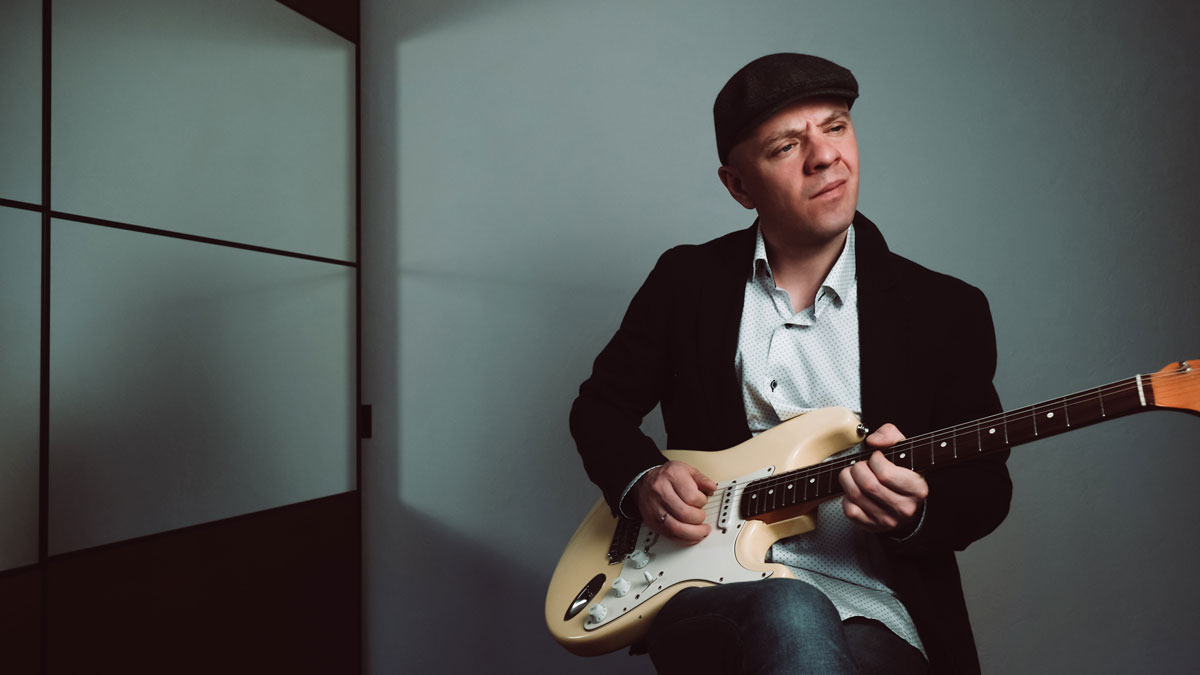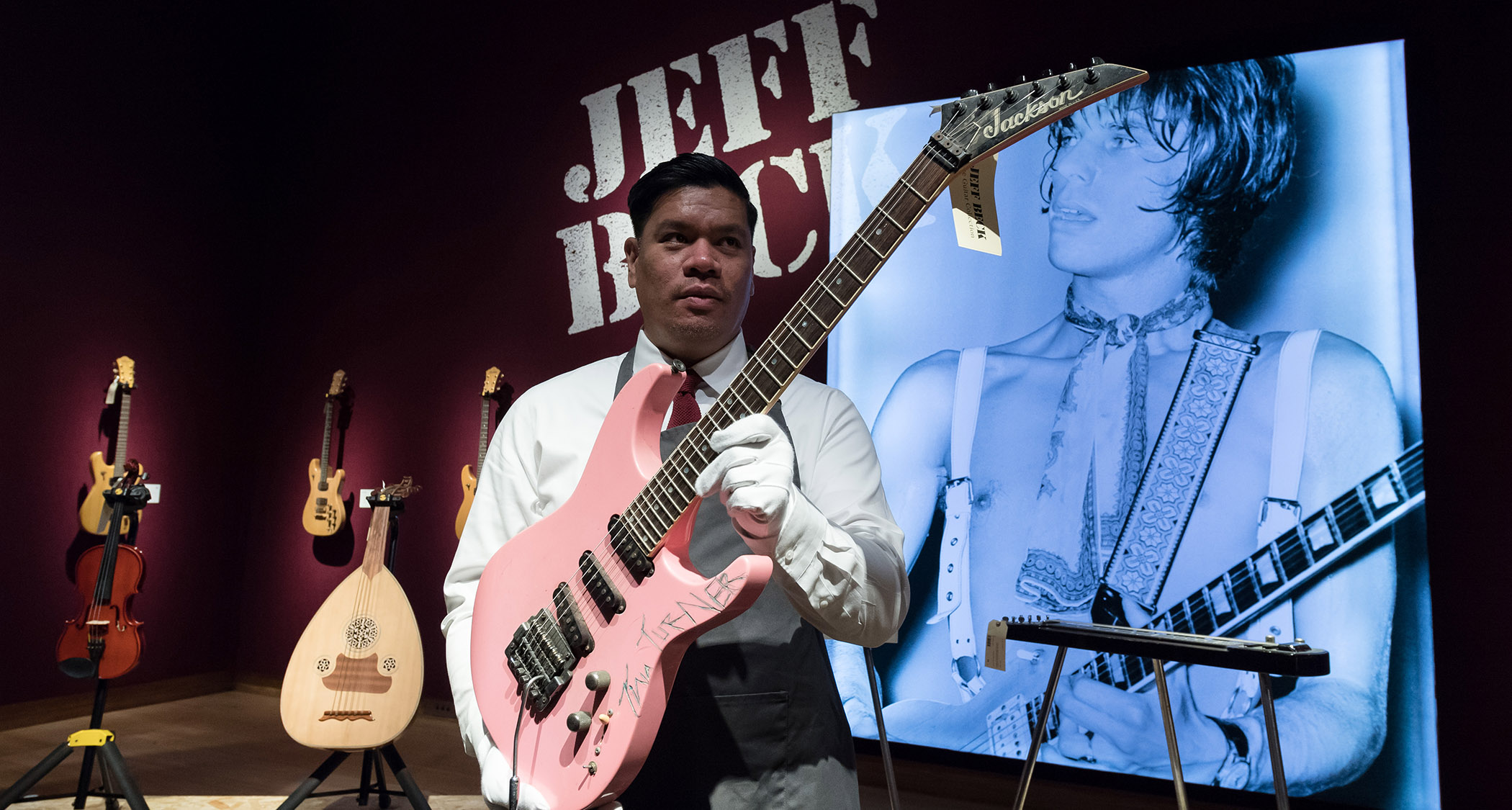Feel like your playing is stuck in a rut? You need to face up to your weak points – it will make you a more well-rounded guitarist

When you first start playing guitar, every day is full of inspiration, but as you improve, frustration can start to take over, particularly when you reach a plateau – ie, you're stuck at one level.
Plateau frustration often creeps in as we catch ourselves starting every solo with the same line, or our fingers automatically form the same chord shape from muscle memory.
To break out of it, you need to restart your inquisitive mind and rekindle the excitement of exploring the endless musical possibilities that unfold when a guitar’s in our hands – and that includes facing up to your weak points.
Reignite the passion
But first, you might find yourself in need of motivation to pick up the guitar at all. One effective strategy to reignite your playing is to listen to your favorite guitar players – or discover new favorites. Appreciating the music of others can draw us back into a mindset where we’re eager to pick up the instrument.
Yet making progress isn't just about enthusiasm; it's about having the right approach. It's key to analyzing your guitar playing and making sure the foundations – fretboard knowledge, right-hand timing, listening abilities – are solid.
Revisiting and refreshing the basics can open up pathways to tackle more complex areas of your playing.
Pinpoint the problems

Coming back to the guitar after a break can be intimidating. It's easy to feel demoralized when you keep bumping into the same obstacles. The trick is to sniff out those frustrating gray areas and tackle the issues head on.
All the latest guitar news, interviews, lessons, reviews, deals and more, direct to your inbox!
Build up from the bottom. You might start with something that seems like a no-brainer at its easiest level. But, as you make it harder by introducing limitations – like keeping up with a metronome or confining yourself to a specific fretboard range – you quickly uncover the areas that are slower and less comfortable.
After all, as guitar master Guthrie Govan told us, “If you sound really good when you’re practicing, that means you’re practicing things you can already do, which isn’t really benefiting you fully.”
It’s like when someone picks up the guitar for the first time. Chord shapes might click fairly quickly, but the true challenge lies in transitioning between them.
The key is reinforcing those neural pathways by repeatedly moving between chords. It's in this mental and physical practice threshold where real, transferable growth takes place.
Take action

Building an action plan will help you pinpoint stumbling blocks. Once you've got your weak points on your radar, the next step is customizing your practice sessions to directly target those areas.
For example, I've recently been unhappy with how I improvise over a dominant 7th chord. I noticed a lag in my brain and a gap in my playing as I became increasingly frustrated when playing over dominant chords – I struggled to clearly outline the harmony and find the closest strong note to land on.
To tackle it, I went for an exercise that isolates chord tones. An arpeggio study was a perfect fit, covering root, 3rd, 5th, 7th – all the strong notes in one place. I set my sights on effortlessly playing through the first chord progression in Something by The Beatles (C / C / C7 / F / D7 / G7) as arpeggios. The key was to pinpoint the exact moment I would stumble on a chord.
First, I mapped out the arpeggios, played through them to get their sound in my head, and zeroed in on the tricky transitions. Setting fret-range limits (eg, no lower than fifth, no higher than ninth), I practiced within this zone.
Once comfortable, I added a metronome, played continuous eighth-note arpeggios, and changed chord every four notes. If I kept up, great; if I stumbled, it would be a sign to refresh my arpeggio knowledge or slow down the metronome.
Building up the exercise from its foundations helps identify that sweet spot – a place where limits can be pushed without crashing. After spending time practicing, I found myself able to play melodic lines over the verse of Something with intent. But switching to a different fret range or the next chord progression of the song? That's a whole new challenge.
Acknowledge the cycle

Hitting a plateau is just part of the natural cycle of learning and playing guitar. What you can do is change how you respond to it: instead of treating it like a headache, it can be seen as a wake-up call to weave new ideas into your playing and vocabulary.
After a deep dive into transcription, tab and exercises, you need to allow time for the learned ideas and musical language to seep in. When inspiration strikes again, it's time to tackle the frustrations. Now, we can pinpoint the gray areas and build focused practice around achieving that peak, limit-pushing threshold.
The frustrations of hitting a plateau are a cue for change – a sign to freshen up ideas, explore new styles, and learn from new players. It could even be the time to finally take up some online guitar lessons.
If you're aiming to efficiently break through a plateau, identify your stumbling points, set controlled limitations and spend as much time practicing within this precise threshold as you can. You'll notice the improvement.
Joe is a freelance writer with an affinity for all things noisy, and loves offset Fenders, Stratocasters, and hollowbodies. He plays jazz and improv residencies and is part of UK grunge outfit IOTA. Alongside his playing, Joe harbors an interest in production and sound design, which propeled him into specialized marketing, interviews, and blog content for electronic music outlets and developers like Slate + Ash. When not merging his love for the guitar with music journalism, Joe succumbs to his fuzz-tone addiction and continually expands his collection of music gear.

